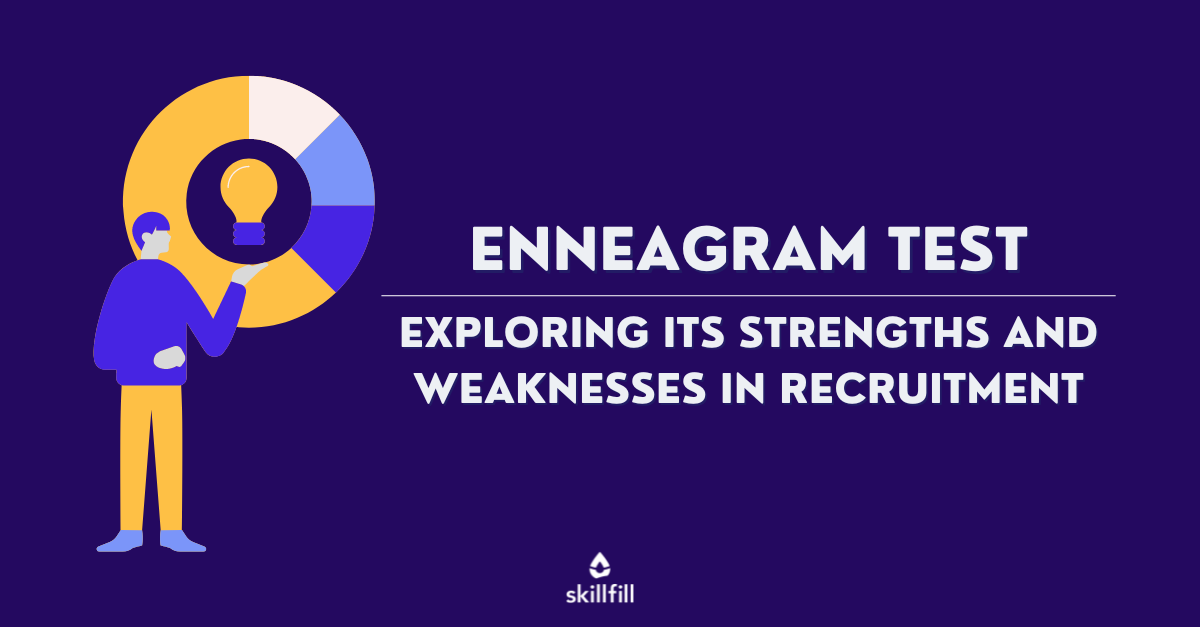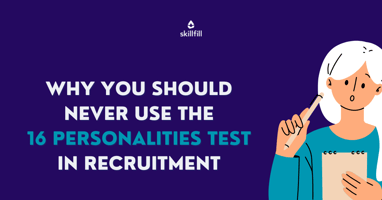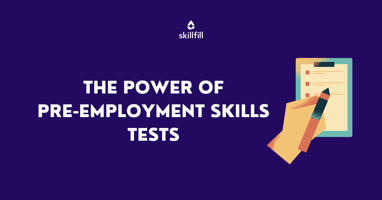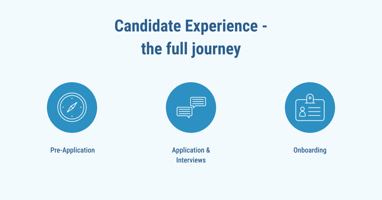It can be challenging to find the perfect candidate for a job opening.
Enneagram Test: Exploring its Strengths and Weaknesses in Recruitment
In today's competitive job market, recruiters and employers face the challenge of identifying candidates who not only possess the necessary skills and qualifications but also align with the company's values and culture. The Enneagram test has gained significant popularity as a powerful tool for understanding personality types and individual motivations. In the realm of recruitment, it provides insights into our personality types, motivations, and behaviors. However, like any psychological assessment, the Enneagram test has its advantages and disadvantages which we will look into in more detail.

Understanding the Enneagram Test
The Enneagram is a personality typology system that categorizes individuals into nine distinct types. Each type represents a unique set of traits, behaviors, and core motivations. By completing the Enneagram test, individuals receive an assessment of their primary type, along with information about their specific patterns of behavior, coping mechanisms, and areas for personal growth.
The test delves into the deep-rooted fears and desires that drive individuals and shape their actions. For example, Type 1, often referred to as "The Perfectionist," is motivated by a desire to maintain integrity and make things right, while fearing being seen as corrupt or defective. Understanding these motivations can provide recruiters with valuable insights into how candidates may approach their work, handle challenges, and interact with others.
Benefits of Using Enneagram Tests in Recruitment
Integrating Enneagram tests into the recruitment process offers several noteworthy benefits. Firstly, these tests can help recruiters understand the candidates' motivations, strengths, and weaknesses. Even though the results should not be interpreted rigidly, recruiters gather more information about the candidate to make more informed decisions, ensuring better alignment between candidates and job requirements.
Additionally, the Enneagram test facilitates self-awareness by revealing our core motivations and fears. It helps candidates recognize patterns of behavior that may have been unconscious, allowing them to make conscious choices for personal growth.
Disadvantages of the Enneagram Test
Like every tool, the Enneagram Test also has downsides that should be taken into consideration before implementation. To start, it is a subject tool. The Enneagram test relies on self-reporting, which introduces subjectivity into the results. People may answer questions based on their perception or desired self-image, leading to potential inaccuracies in the assessment.
Secondly, the test in question lacks scientific evidence. Critics argue that the Enneagram lacks robust scientific validation compared to other personality assessments. The limited empirical research raises concerns about its reliability and validity as a psychological tool.
Finally, the Enneagram test suggests a simplistic categorization of the candidates. It categorizes individuals into nine distinct types, which some find overly simplistic. Human personalities are complex and multifaceted, and reducing them to a single category may oversimplify the richness of individual differences.
Enhancing Hiring Decisions with Enneagram Tests
If you want to use Enneagram Tests in your recruitment process, here are some tips to do so without compromising on the quality of your hiring:
- Use it as a tool, not a definitive answer
Integrate Enneagram tests strategically within the recruitment process. View the Enneagram test as a tool for self-reflection and growth, rather than a fixed label defining someone's entire identity. While the tests provide valuable insights, they should not be the sole determining factor in the decision-making process. - Combine it with other assessments
To gain a more comprehensive understanding of your personality, consider using the Enneagram test alongside other reputable assessments, such as skillfill.ai skill assessments. Integrating multiple perspectives provides a more nuanced view of the candidate's profile. - Seek professional guidance
Consulting with a trained Enneagram professional can provide valuable insights and help you navigate the complexities of the Enneagram system. They can offer personalized interpretations and guide you toward effective personal growth strategies.
Ethical Considerations and Data Privacy
When utilizing Enneagram tests in recruitment, it is essential to prioritize data privacy and maintain ethical practices. Organizations should ensure that candidate information is handled securely and confidentially, in compliance with applicable data protection regulations. It is crucial to obtain candidates' consent, clearly communicate the purpose of the assessments, and provide them with access to their results.
Responsible usage of Enneagram tests involves recognizing the limitations of the assessment and acknowledging that individuals are multifaceted beings. The Enneagram provides valuable insights, but it should be used as part of a broader recruitment strategy that considers other factors as well.
Conclusion
The Enneagram test offers valuable insights into our personalities, helping recruiters to gather extra information for better decision-making and improved overall organizational fit. However, this test also has some downsides that should be taken into account by maintaining a critical perspective on the results and combining it with other types of assessments.
ASSESS TECH TALENT BEYOND CVs
Start today your 14-day free-trial and identify the best tech talent to join your team.



